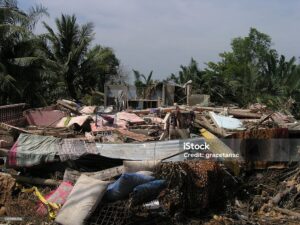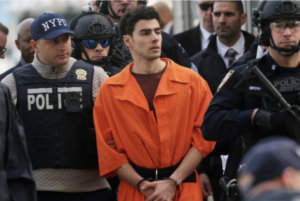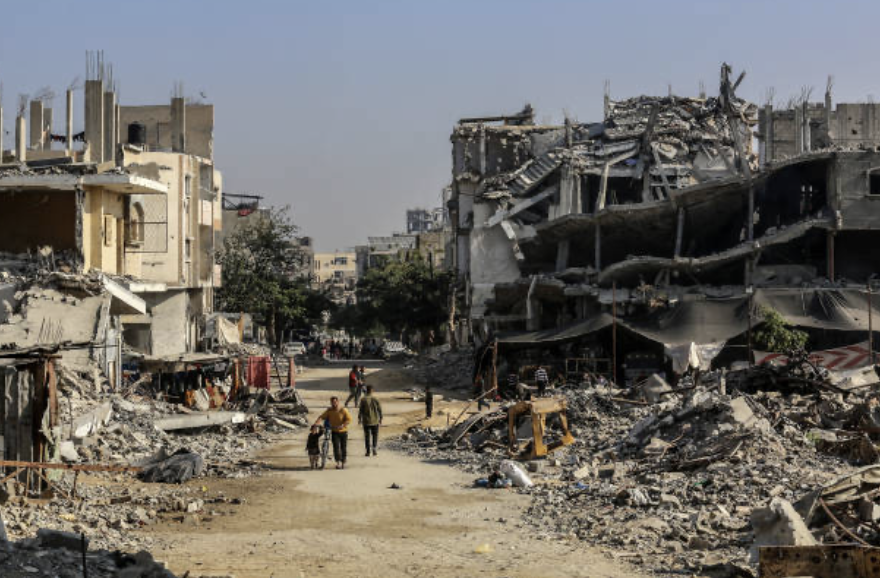Based on extensive evidence gathered over months of Israeli military operations, the report claims that Israel’s tactics in Gaza have intentionally targeted civilian infrastructure, caused mass displacement, and exacerbated an already dire humanitarian crisis. The allegations come at a time when the region is grappling with severe violence, ongoing airstrikes, and a rapidly worsening humanitarian situation.
Targeting civilian infrastructure: A violation of international law
One of the key elements of HRW’s report is the accusation that Israel has deliberately targeted civilian structures during its military operations. According to the organization, the Israeli Defense Forces (IDF) have bombed homes, hospitals, schools, and vital infrastructure such as water plants and electricity grids. This destruction, the NGO argues, goes beyond military necessity and violates international law, specifically the Geneva Conventions, which protect civilians from direct attacks during armed conflict.
Israel’s military has argued that these targets are either used by Hamas, the militant group that governs Gaza, for military purposes, or that their destruction is necessary to neutralize Hamas’s ability to carry out attacks. However, HRW maintains that these actions disproportionately harm Gaza’s civilian population, many of whom have no connection to militant activities. The report highlights that the destruction of civilian infrastructure is not only a violation of the law but also a form of collective punishment, which is prohibited under international law.
Forced displacement and humanitarian crisis
HRW also points to the forced displacement of Palestinians as a central aspect of Israel’s military strategy. The report claims that the scale of displacement, which has forced thousands of Gazans to flee their homes, is a form of ethnic cleansing. Large areas of Gaza have become uninhabitable because homes and infrastructure have been destroyed.
The international organization argues that the scale of this displacement is not a mere byproduct of conflict, but rather a deliberate attempt to undermine the Palestinian population’s ability to survive in Gaza. Many displaced families have been forced to live in temporary shelters, which lack the basic necessities for survival, including food, water, and medical care. The destruction of Gaza’s infrastructure, coupled with the ongoing blockade, has left the region facing a humanitarian disaster of unprecedented proportions.
Civilian casualties and disproportionate use of force
Another major concern raised by HRW is the high civilian death toll resulting from Israeli airstrikes and artillery bombardments. The report claims that Israel’s military actions have disproportionately harmed non-combatants, violating the principle of proportionality under international humanitarian law, which mandates that military attacks should not cause excessive harm to civilians compared to the expected military advantage.
HRW cites mounting casualties, with thousands of Palestinians reported dead and many more injured in the ongoing conflict. The group asserts that Israel’s military conduct is reckless and may have genocidal implications, as the disproportionate impact on civilians appears to be part of a strategy of inflicting collective suffering. As part of the report, HRW calls attention to the fact that many of the casualties include women, children, and the elderly, groups that are particularly vulnerable in times of conflict.
Israel’s defense: Self-defense against Hamas
In response to the allegations, the Israeli government has strongly rejected HRW’s accusations, maintaining that its military operations are a legitimate and necessary response to the ongoing threat posed by Hamas. Israeli officials have stated that Hamas is a terrorist organization responsible for launching attacks against Israeli civilians and that Israel has the right to defend itself from these threats. According to Israel, its military actions are aimed at dismantling Hamas’s military infrastructure and stopping rocket attacks targeting Israeli cities.
Israel’s government also points to the measures it takes to minimize civilian casualties, such as « warning shots » and « roof knocking » tactics, which are meant to alert civilians to evacuate their homes before a strike occurs. Critics argue that these methods are ineffective in the densely populated areas of Gaza, where fleeing to safety is often impossible.
A critical juncture for Israel and Gaza
The release of HRW’s report marks a critical moment in the ongoing conflict, as it brings attention to the devastating human rights situation in Gaza. Whether these accusations will lead to concrete legal or political consequences for Israel remains uncertain, but the report’s contents are likely to have lasting implications for the region’s geopolitics.
For many, the situation in Gaza represents not just a humanitarian crisis but also a test of international norms and laws. As the conflict continues, both Israel and the global community will face increasing pressure to ensure that accountability is upheld and that the human rights of all civilians, Israeli and Palestinian alike, are respected.
The coming months may determine the trajectory of peace efforts in the region and whether international law can effectively address the atrocities unfolding in Gaza. Until then, the humanitarian catastrophe will continue, with disastrous consequences for the people of Gaza and the Middle East as a whole.










